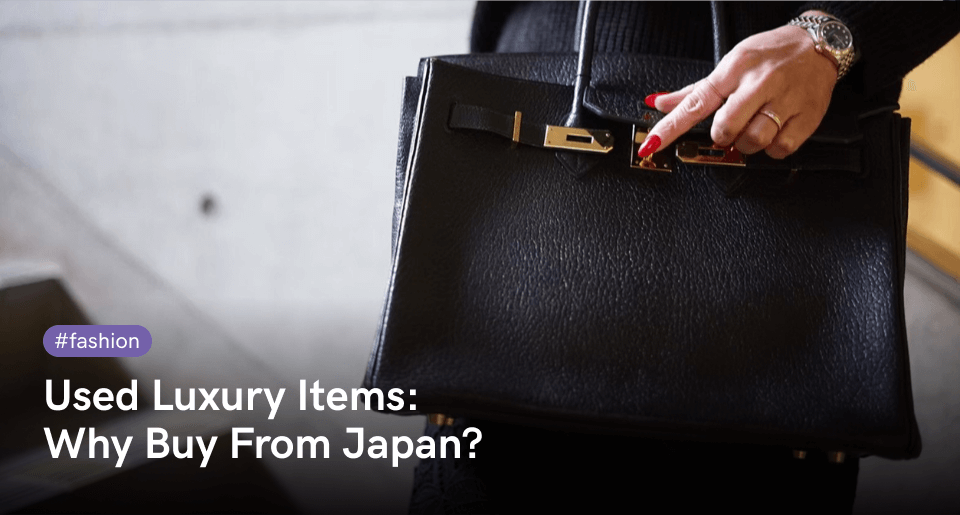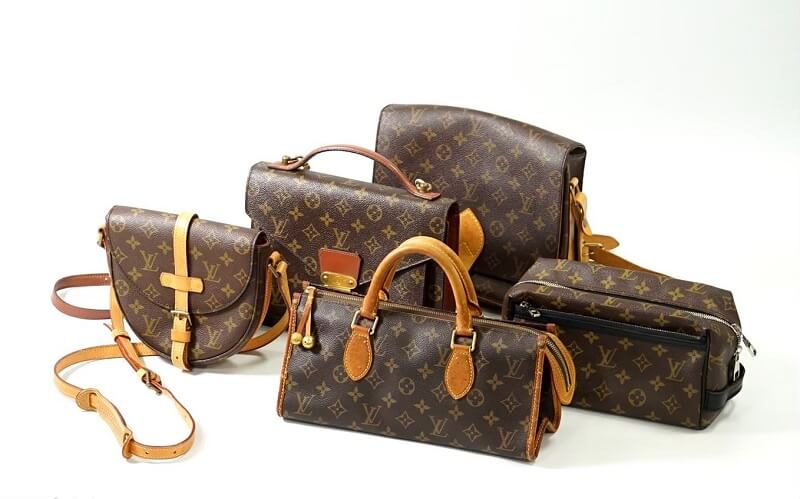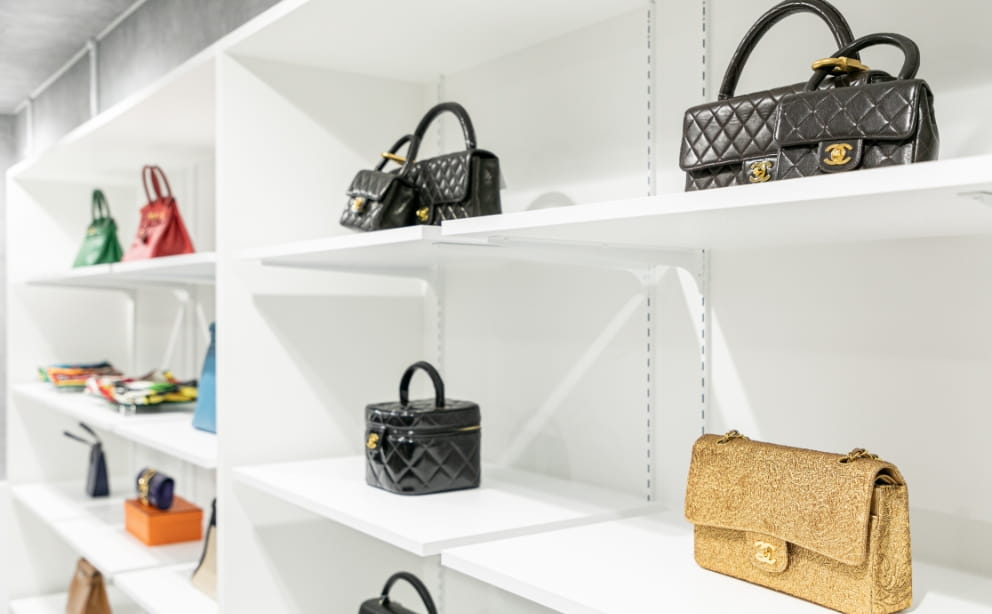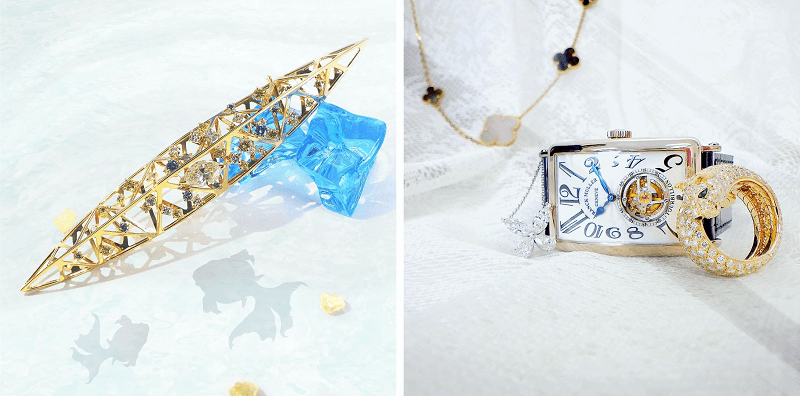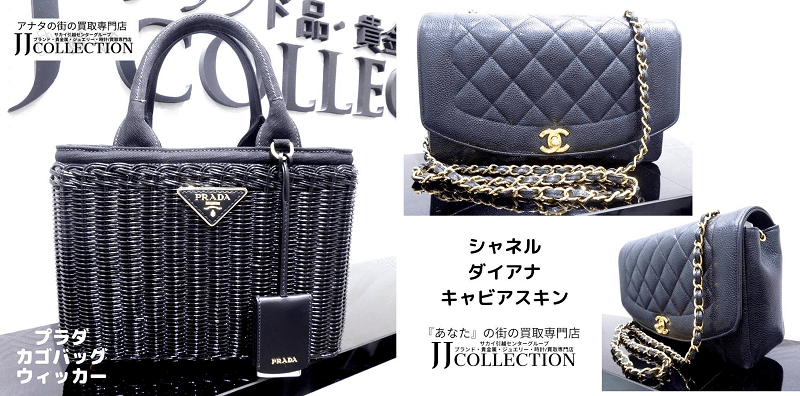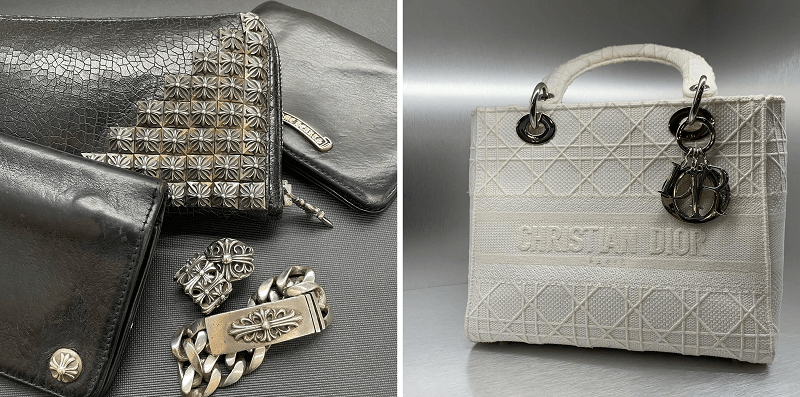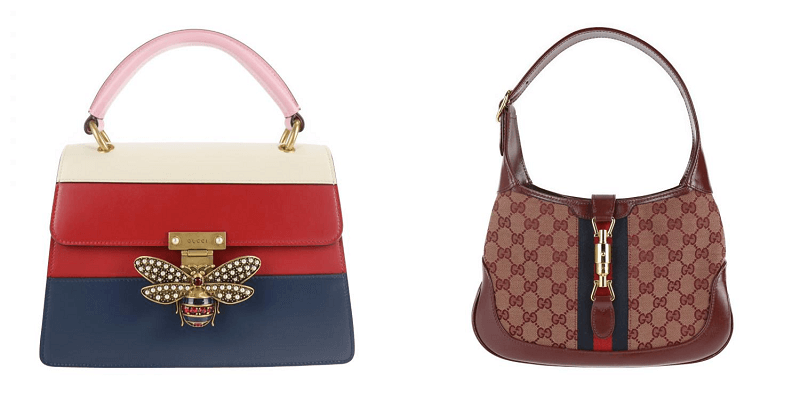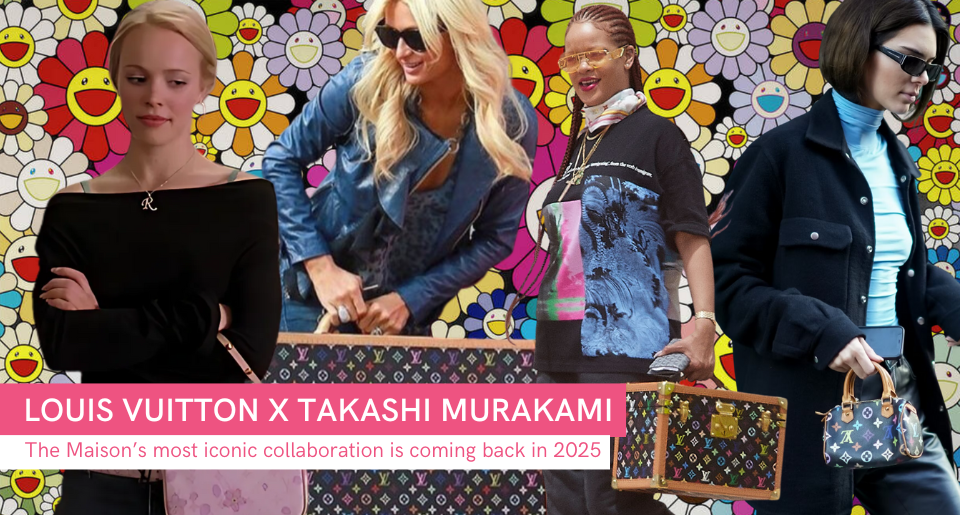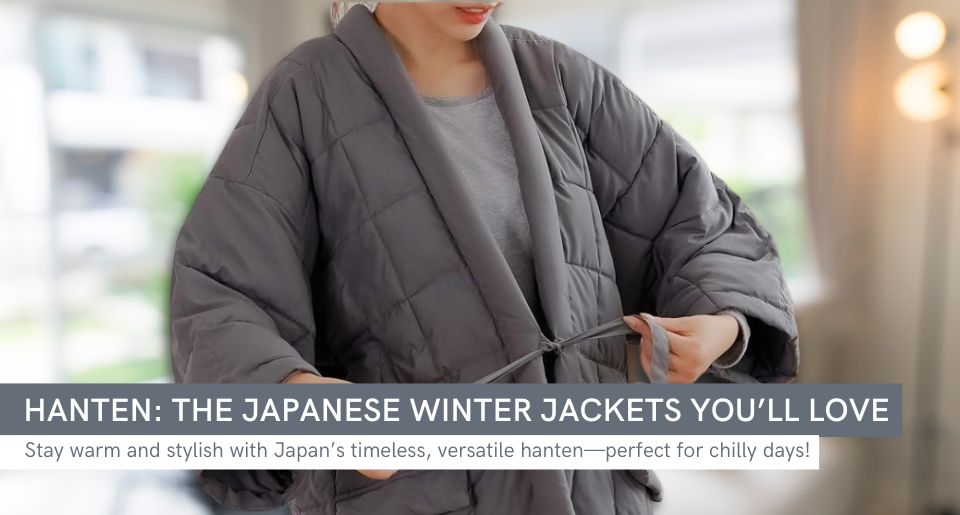With stress and work-life balance the thing on everyone's lips nowadays -- especially with the global pandemic -- the importance of treating yourself has never been greater.
And for fashion lovers or treasure collectors, what better treat could there be than branded clothing and other luxury goods? Not only are they timeless fashion statements, they're also inherently valuable to boot -- and who knows what that value will grow to in years to come!
Unfortunately, though, the harsh reality is that many of us simply can't afford to buy factory-new designer bags from big names like Louis Vuitton, Chanel, Hermes, or Gucci.
But that's where used luxury items come in.
In this guest post, you'll:
- Learn about the rising popularity and benefits of the secondhand market
- Find out why Japan is a treasure trove of used luxury items
- Discover where to buy used luxury items from Japan online
Read on to find out how designer handbags and other treasures in the secondhand market can help you and your loved ones live the celebrity life at a fraction of the cost -- all while protecting the environment at the same time!
Contents
All eyes are on used
Used, preloved, pre-owned, secondhand...
They're all terms that are commonly used to describe products in the secondary market. That means the products aren't factory-new from the manufacturer per se, but in many cases they're still in pristine condition -- and, therefore, still of considerable value.
Of course, there's no better example of that value retention than in the case of used luxury items.
A booming market
The sale and purchase of preloved goods in general has grown into a massive 28 billion USD industry that's on track to surpass even the almighty fast fashion world by 2029.
Even when you focus on secondhand designer fashion alone, the scale is staggering: Belgian market research firm IntoThe Minds explains in a 2020 report that the used luxury goods market "is growing by 12% per year and already represents 25 billion Euros."
But how does that translate into spending habits at the consumer level, and what does it mean for fans of luxury fashion like yourself?
Preloved is the new beloved
Gone are the days where people scoff at anything less than brand new or factory mint -- even for designer goods and classic luxury items.
A 2021 survey asked luxury shoppers in the United States about their planned luxury good purchases over the next two years, and found that:
- About 60% planned to buy used luxury handbags
- About 50% planned to buy used luxury jewelry
With more and more reliable avenues to source their favorite treasures, clearly even diehard fans of Louis Vuitton, Chanel, Gucci, and other brands are coming around to the appeal and convenience of buying goodies secondhand!
Treat yourself -- and others
Another noteworthy trend relating to used designer bags, watches, jewelry, clothing, and other luxury goods is in the context of secondhand gift-giving. Makes sense, too, given that the secondary market is by nature more environmentally (and economically) friendly than buying at retail price.
You've heard of the "Treat yourself!" mantra when it comes to rewarding your daily efforts with a stylish Hermès bag, Rolex watch, or Cartier ring. But sharing is caring, after all, and used luxury items provide the perfect chance for you to treat others too!
Why are used luxury items so popular?
Now that you've read about how the public community itself is shifting gears towards preloved designer fashion, it begs another question:
What makes the stuff so popular anyway?
Timeless, affordable classics
Besides being easier to afford than brand-new options hot off the shelf, there's also the added bonus of many used luxury bags and other treasures just never going out of style.
While a brand's seasonal collection will invariably send shockwaves throughout the fashion world upon release, it's also very much a product of current trends and experimentation. Who knows -- within a year or two those colors, designs, and materials might be old news!
For many, that begs the question: Why shell out tens of thousands of dollars on a bag, wallet, or article of clothing with such a limited supply and an even more limited lifespan?
In contrast to seasonal "talks of the town," a preloved flagship model (like a Hermes Birkin or Louis Vuitton Neverfull) benefits from generations of potential future use, and a more reasonable price range due to the sheer number in circulation.
They don't call them "timeless classics" for nothing!
Benefits of buying from Japan
Visitors from abroad account for a significant portion (all things considered) of luxury good sales in Japan.
A 2016 article about Japan's largest preloved designer fashion store chain, Komehyo, explains that 15% of its yearly sales come from foreign tourists. (The article cites a sales figure of 39 billion yen -- roughly 250 million US dollars at the time of this blog post's writing -- spanning the period between April and December 2015.)
Why did these foreign tourists single out Japan as their source of used luxury items?
Two possible reasons are sheer volume and superb quality.
Volume: The more the merrier
The number of stores appraising and selling used luxury items in Japan has skyrocketed over the past decade.
This is a reflection of Japanese consumer tastes and spending habits. In fact, in Japan you need only take a stroll downtown to see teenagers and adults alike sporting Louis Vuitton backpacks, Gucci long wallets, and even Dolce & Gabbana bucket hats.
Here's some statistics about ownership of designer bags and other luxury items in Japan:
- About 50% of the 10,611 people in this survey owned a luxury item
- About 73% of the 450 people in this survey owned at least one luxury item, with seven items being the average number!
Quality: Taking care of your things
Japanese consumers are renowned for being the "most demanding in the world" when it comes to the quality of the products they buy (according to business heavyweights Deloitte Japan).
That, of course, means that any given Louis Vuitton wallet, tote, or other luxury wardrobe essential is still in superb condition when it enters and circulates around the secondhand market. After all, it doesn't make sense to pay so much attention to the craftsmanship and quality of your potential purchase if you're just going to make a literal mess of it afterwards!
That level of care and delicate handling throughout a luxury item's life in Japan is what makes it absolutely appealing for treasure hunters from overseas.
Want some simple yet hard-hitting examples of just how well Japanese people take care of their possessions? Enter any cafe here and you'll almost certainly find handy storage boxes to place your bag, backpack, purse, or satchel in. Hop on a bus or train and you'll see that many people don't just dump their belongings on the floor (even if they're not designer brand material) -- they'll actually cling onto them for the entirety of their journey. Don't want to get your stuff dirty, after all -- even if it means lugging it around for longer!
Japan's secondary luxury market
How does luxury fashion in Japan transition from brand-new offerings to secondhand treasures?
Here's a quick overview of how the market unfolds:
- Consumers buy luxury items brand new at boutique stores and malls
- Major used outlets take the goods off consumers' hands
- Smaller used stores purchase the major outlets' stock
- Treasure hunters buy the used goods at a fraction of the original price
Stores acquire their inventory via auctions that frequently take place around the country. Notably, only merchants with an authorized antique dealer's license are allowed to participate in these auctions.
The complexity, maturity, and security of the used luxury items market in Japan means that the risk of counterfeit (or even misrepresented) products entering the midst is substantially lower than you might imagine.
Professional purchasers and appraisers
It's only natural that the surging popularity of branded clothing and other goodies in the secondary market brings with it an increase in the number of professional purchasing services in Japan that specialize in them.
Of course, what sets these services apart from regular thrift stores is the fact that they employ their own in-house appraisers.
These experts have the necessary training, education, and qualifications to judge the authenticity (and monetary value) of any branded products that come their way. This includes a detailed understanding of product condition, manufacturers, logos, designs, rarity, and market trends.
In terms of safety and peace of mind, purchasing from a trustworthy store with professional credentials and a proven track record in customer satisfaction is crucial for treasure hunters hoping to pick up some preloved luxury fashion.
The shift towards sustainability
One final advantage of shopping for used luxury goods is that it helps protect the environment.
Environmental sustainability -- and its UN-backed benchmarks, the 17 Sustainable Development Goals (SDGs) -- is a top priority in the minds of the modern young consumer, according to the 2019 State of Fashion report.
Given the following data about fashion consumption, it's not hard to see why:
- The average American throws out an average of 70 pounds of clothes every year
- People in the UK generate 2.35 million tonnes of discarded clothing every year -- and in 2009, two tonnes of discarded fast fashion had only been worn around six times per item
Happily, the preloved luxury items market and those who participate in it are, by nature, advocates of a shift towards sustainability.
The Japanese concept of mottainai (reluctance to waste things) is a shining example of this positive change in focus, and is what helps make said market so strong and extensive in the country.
Where to buy used luxury items online
Looking to buy used luxury items from Japan, with the added benefit of great quality and affordable prices as outlined in this article?
Head on over to the designer brands category here on ZenPlus to browse our huge collection of luxury bags, fine jewelry, designer clothing, watches, and other accessories.
Alternatively, read on to discover our top store picks!
1. HIRAKOBA
HIRAKOBA runs its brick-and-mortar store out of Nagasaki, a port town that's obviously no stranger to international trade.
The business is spearheaded by Tetsuya and Tsubasa Hirakoba, who not only lent their name to the business but also have more than 10 years of industry experience.
HIRAKOBA sells used designer bags, watches, and even Japanese kimono!
2. Penguin Vintage
Penguin Vintage is based in the bustling Shibuya district of Japan's capital city, Tokyo.
From vintage Chanel clothing to popular bags and other accessories by Louis Vuitton, Dior, Gucci, Hermès, and more -- it's a luxury fashion lover's dream.
There's even in-house repair and cleaning staff!
3. JB Works
Source: Instagram
JB Works is located in Kyoto and specializes in fine jewelry, watches, precious stones, and other high-end luxury items.
It also happens to be a member of the Japan Jewelers Association (est. 1974), which focuses on gemstone appraisal, education, and other promotional activities.
Here you'll find dazzling jewelry from international brands like Cartier and Tiffany, as well as famous Japanese manufacturers like Mikimoto and Tasaki!
4. JJ Collection
Source: Instagram
5. BRING
Source: Instagram
Slightly different but equally as luxurious as the stores above is BRING, errs more on the side of designer accessories and streetwear (as opposed to handbags per se). With stores in Tokyo, Nagoya, and Osaka, its collection ranges from Chrome Hearts and Goro's accessories to luxury brand sneakers, denim, and more.
6. Go! Go! Brand
Go! Go! Brand's corporate mission is to promote the act of reusing and recycling -- so the used luxury item market is the perfect match!
In addition to operating storefronts in Hyogo Prefecture and logistics centers in eastern Japan, the company also actively engages in the education and training of professional appraisers.
Japan: A treasure trove of used luxury
In a stark departure from consumer tastes of days gone by, the secondary market has become an indispensable avenue for buying brand-name handbags, watches, accessories, jewelry, clothing, and more. Not only is it a stylishly safe choice, it's also an economical and environmentally friendly one to boot.
Still, when it comes to actually shopping for used luxury items, you'll want to keep your wits about you and only buy from places you can trust. Japan is indeed one such place, due to its mottainai spirit -- the inherent culture of taking good care of products and not letting anything go to waste.
Tap or click the buttons below to see more of our used luxury item collection!
Brand-new and Preloved Fashion
Jewelry, Watches & Accessories
Branded Bags & Other Designer Items
Alternatively, you may search items by browsing different product categories.
BROWSE DESIGNER BAGS BROWSE FINE JEWELRY
Other articles you'll enjoy
For more helpful guides to the world of fashion in Japan, check out the articles below:
- How to Choose a Leather Wallet: The Complete Guide
- Japanese Skin Care Routine: 4 Steps For Better Skin
- Clothes Your Kids Will Love: Marutaka Clothing
Thank you so much for reading!
....................................................
Like this article? Please share to
